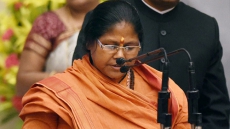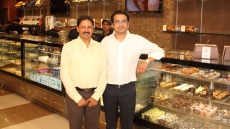The traditional brass and copper craft of utensil making from Punjab has been inscribed on Unesco's 2014 Representative List of the Intangible Cultural Heritage of Humanity, an official statement said Tuesday.
This utensil making among the thathera of of Jandiala Guru community is the 11th element which has been inscribed in the list.
"This craft constitutes the traditional techniques of manufacturing brass and copper utensils in Punjab," said an statement from the culture ministry.
"The craft utensils are of both utilitarian and ritualistic value made of copper, brass and 'kansa', an alloy of copper, zinc and tin," it added.
This crafting process is carried out by a specific group of craftspeople, the Thatheras, who have a unique ethnic and historical identity with an oral tradition that underpin their skill.
The crafts colony was established during the reign of Maharaja Ranjit Singh, the 19th century Sikh monarch, who encouraged skilled metal crafters from Kashmir to settle in the heart of his kingdom in the Punjab.
Jandiala Guru became an area of repute due to the skill of the thatheras.
"The inscription of the element on the representative list will tangibly contribute to the visibility of the intangible cultural heritage in general by lending recognition to the skill of the thatheras that have been orally transmitted for generations upon generations so far," said the statement.
"Its inscription could contribute to encourage dialogues with other communities worldwide that practice traditional metal craftsmanship to manufacture handcrafted products that are both useful and beautiful," it added.





